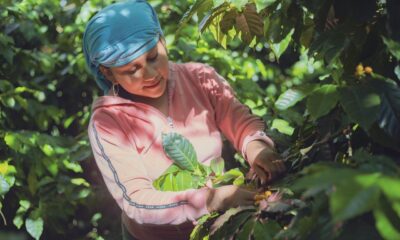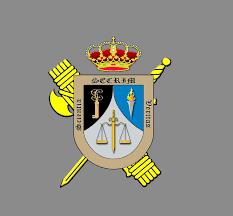

News
61 TIMES MORE ECO-FRIENDLY

During the opening ceremony of the 3rd Conference on Environmentally-Friendly Foods and Gastronomy, the Director-General for Industry and Food Markets of the Ministry of the Environment and Rural and Marine Affairs, Isabel Bombal, highlighted that the number of eco-friendly industries in Spain has grown by a factor of 61 between 1991 and 2009, with 71% of the eco-friendly industrial structure being located in the autonomous regions of Catalonia, Andalusia, the Region of Valencia, the Region of Murcia, Aragon and Castile La Mancha.
Furthermore, Isabel Bombal pointed out that Spain is the leading EU country in terms of land dedicated to Environmentally-Friendly Agriculture (more than 1.6 million hectares).
The Director-General highlighted the commitment made by the Ministry of the Environment and Rural and Marine Affairs to eco-friendly agriculture aimed at sustainability for the rural environment, at the protection of land used for farming and the environment and at enhancing the image, prestige, distinction and defence of numerous high-quality food product ranges that are produced in Spain.
Isabel Bombal indicated that eco-friendly production has now been fully implemented on every continent around the world but that the consumption of eco-friendly food and drink is highly concentrated in a very small number of highly-developed countries. This leads to a clear distinction between producer (or exporter) countries and consumer (or importer) countries.
Isabel Bombal underlined the need to communicate the attributes of environmentally-friendly foods, emphasising what they are, what they provide and avoiding comparative communications with other types of conventional foods. This is the only way it will be possible to define the most appropriate policies and strategies to distinguish these products and, based on that definition, the most suitable comprehensive marketing plans.
The Director-General stressed that marketing strategies aimed at achieving sustained growth in the consumption of eco-friendly food and drink must establish the following “objectives”: the incorporation of conventional consumers, a larger number of conventional buyers of eco-friendly products and a wider range of eco-friendly products purchased.
As regards the development of the domestic eco-friendly food and drink market, Isabel Bombal stated that Spain must seek a balanced and sufficient offer or basket of eco-friendly products, in which the main food and drink items found in the Spanish diet (both meat and vegetables) must be duly present in the correct proportions.
She also said that there is an important flow of exports (50% of industrial turnover is from exports) and the level of internationalisation is quite high (32% of all companies export). Three sectors (Fruit & Vegetables, Oil and Wine) already account for 74% of all exports.
The Director-General for Industry and Food Markets of the Ministry of the Environment and Rural and Marine Affairs pointed out that the HORECA sector (Hotel, Restaurant, Cafe) represents a 2% share of the total domestic market for these products.
Finally, the Director-General highlighted that the promotion strategy being applied to environmentally-friendly food is aimed at developing the domestic market, improving commercialisation structures in the domestic market and increasing the information provided to the public regarding the production method as the main area for promotion. Furthermore, she underlined the importance of accessibility to eco-friendly food by consumers in all distribution channels with an offer that is attractive and sufficiently broad.

During the opening ceremony of the 3rd Conference on Environmentally-Friendly Foods and Gastronomy, the Director-General for Industry and Food Markets of the Ministry of the Environment and Rural and Marine Affairs, Isabel Bombal, highlighted that the number of eco-friendly industries in Spain has grown by a factor of 61 between 1991 and 2009, with 71% of the eco-friendly industrial structure being located in the autonomous regions of Catalonia, Andalusia, the Region of Valencia, the Region of Murcia, Aragon and Castile La Mancha.
Furthermore, Isabel Bombal pointed out that Spain is the leading EU country in terms of land dedicated to Environmentally-Friendly Agriculture (more than 1.6 million hectares).
The Director-General highlighted the commitment made by the Ministry of the Environment and Rural and Marine Affairs to eco-friendly agriculture aimed at sustainability for the rural environment, at the protection of land used for farming and the environment and at enhancing the image, prestige, distinction and defence of numerous high-quality food product ranges that are produced in Spain.
Isabel Bombal indicated that eco-friendly production has now been fully implemented on every continent around the world but that the consumption of eco-friendly food and drink is highly concentrated in a very small number of highly-developed countries. This leads to a clear distinction between producer (or exporter) countries and consumer (or importer) countries.
Isabel Bombal underlined the need to communicate the attributes of environmentally-friendly foods, emphasising what they are, what they provide and avoiding comparative communications with other types of conventional foods. This is the only way it will be possible to define the most appropriate policies and strategies to distinguish these products and, based on that definition, the most suitable comprehensive marketing plans.
The Director-General stressed that marketing strategies aimed at achieving sustained growth in the consumption of eco-friendly food and drink must establish the following "objectives": the incorporation of conventional consumers, a larger number of conventional buyers of eco-friendly products and a wider range of eco-friendly products purchased.
As regards the development of the domestic eco-friendly food and drink market, Isabel Bombal stated that Spain must seek a balanced and sufficient offer or basket of eco-friendly products, in which the main food and drink items found in the Spanish diet (both meat and vegetables) must be duly present in the correct proportions.
She also said that there is an important flow of exports (50% of industrial turnover is from exports) and the level of internationalisation is quite high (32% of all companies export). Three sectors (Fruit & Vegetables, Oil and Wine) already account for 74% of all exports.
The Director-General for Industry and Food Markets of the Ministry of the Environment and Rural and Marine Affairs pointed out that the HORECA sector (Hotel, Restaurant, Cafe) represents a 2% share of the total domestic market for these products.
Finally, the Director-General highlighted that the promotion strategy being applied to environmentally-friendly food is aimed at developing the domestic market, improving commercialisation structures in the domestic market and increasing the information provided to the public regarding the production method as the main area for promotion. Furthermore, she underlined the importance of accessibility to eco-friendly food by consumers in all distribution channels with an offer that is attractive and sufficiently broad.
-

 Court News2 weeks ago
Court News2 weeks ago66-year-old suspect sexual assault surfer on trial
-

 Crime and Policing2 weeks ago
Crime and Policing2 weeks agoThe Guardia Civil arrests three people for illegal street race
-

 Driving in Spain2 weeks ago
Driving in Spain2 weeks agoHow Long Does it take to Receive a Traffic Fine Through the Post?
-

 Crime and Policing2 weeks ago
Crime and Policing2 weeks agoWarning issued over latest text message scam




















